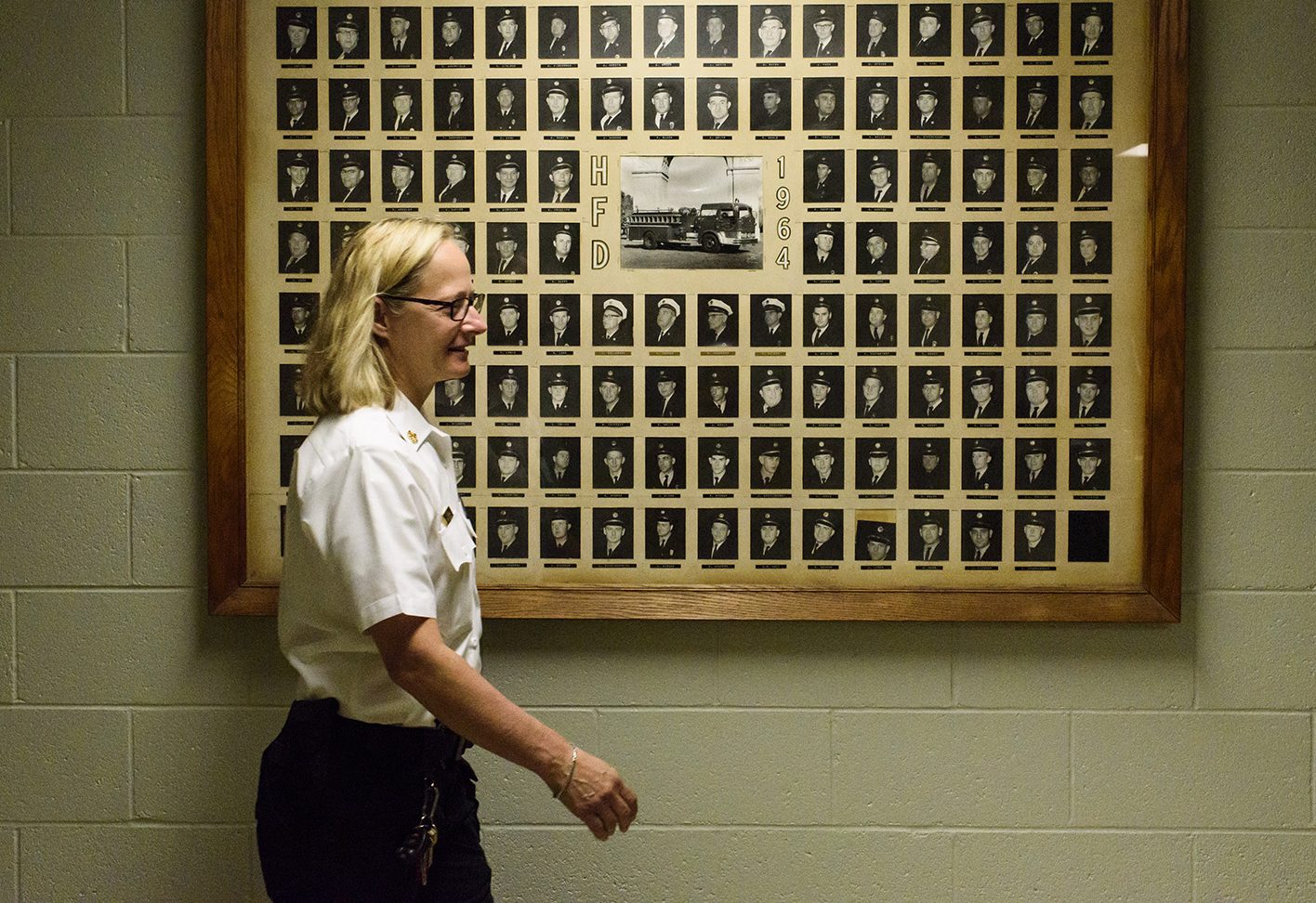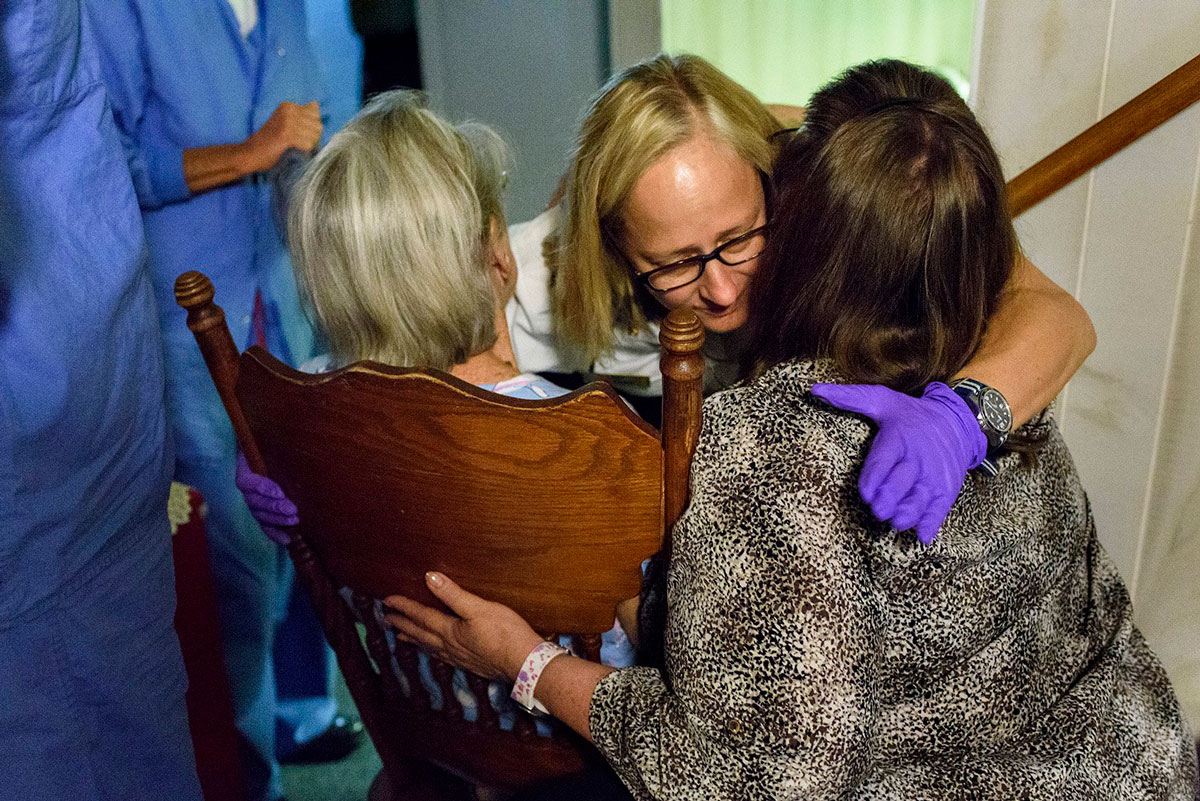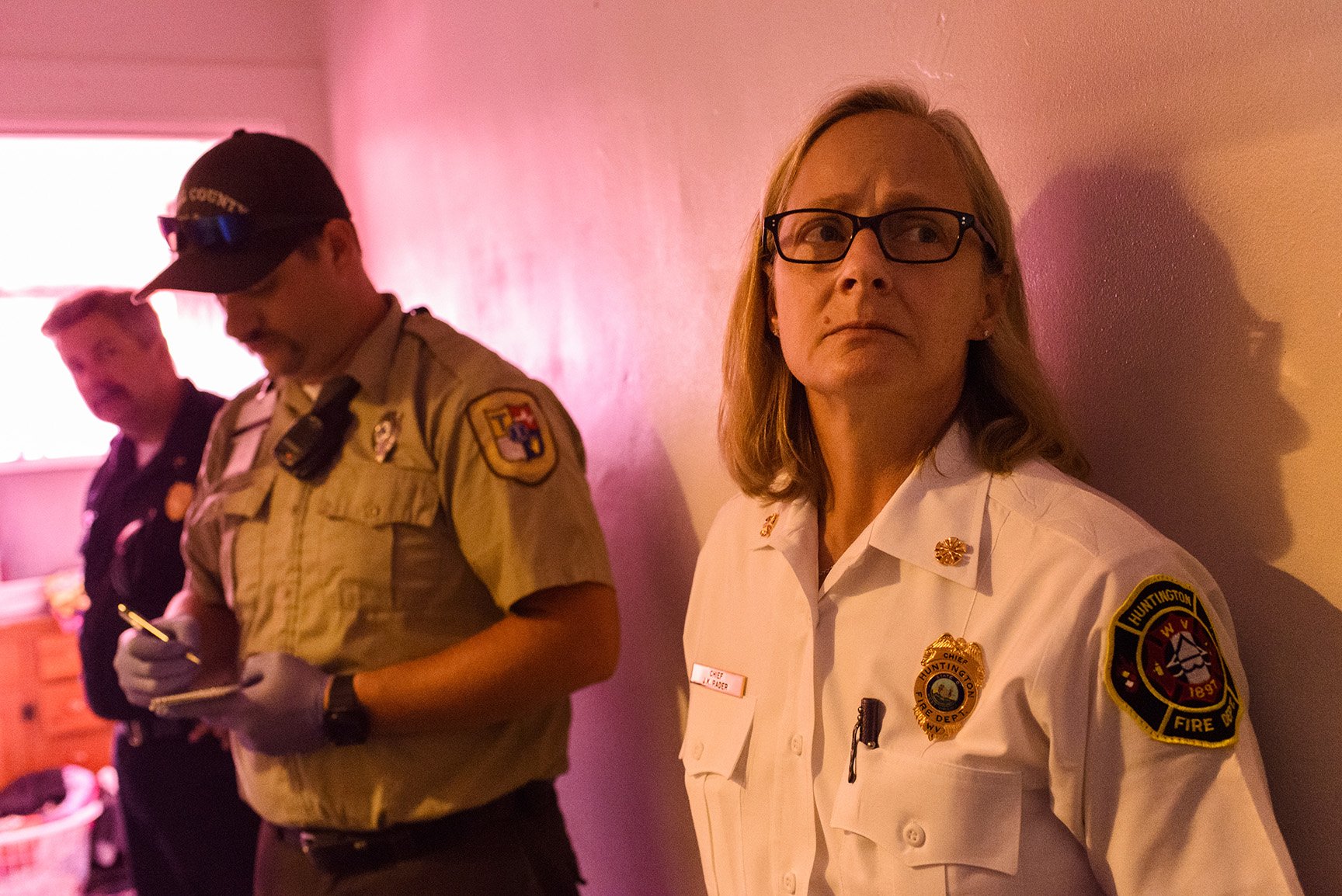
For a sense of Jan Rader’s impact, look no further than her inbox. As the Huntington, West Virginia, Fire Department chief, Rader often receives messages like these from grateful citizens whom she revived from opioid overdoses. Rader also has received 500 emails from 20 different countries about Heroin(e). Released on Netflix last September, the 2018 Academy Award-nominated documentary highlights the height of the opioid crisis in Huntington and Rader’s role in combating it.
Heroin(e) director Elaine McMillion Sheldon calls Rader, AAS ’08, “one of the most resilient and caring public servants I have ever met. Her tenacity and devotion to strong leadership—in times of a public health crisis—is so inspiring and important.” Rader’s resiliency inspired TIME magazine’s readers and editors to place her on the 2018 “TIME 100” list of the year’s most influential people.

As a public servant serving the Huntington, West Virginia, community, Rader’s resiliency and energy keep her in seemingly constant motion.
That dogged tenacity has served Rader especially well in Huntington, which experienced 1,235 overdoses in 2017. “One-quarter of the time when a Huntington firefighter jumps on a truck, they are going to an overdose,” says Rader.
For that reason, Huntington Mayor Steve Williams asked Rader to join his newly formed Mayor’s Office of Drug Control Policy in 2014.
“The level of compassion that she shows to individuals suffering from drug addiction has brought a level of dignity and respect to our aggressive efforts to defeat this disease,” says Williams.
One of Rader’s top accomplishments has been to develop a system for tracking overdose statistics in realtime—counting not only emergency room patients transported by ambulance, but also by personal vehicle. She says having more accurate information enables the city to better address the problem, as well as apply for grants.
“We knew sharing those numbers would draw negative attention [to Huntington], but it was what we needed to do to fight and win back our community,” says Rader.
In her post, Rader relies on two key tenets she learned as a nursing student at OHIO’s Southern Campus: to “always do the right thing,” and to be a patient advocate, first and foremost. Says Rader, “It’s so important to have an education like [OHIO] offers, because they give you that personal touch, instilling a sense of civic duty.”
And one that Rader fulfills very well as Huntington’s resident Heroin(e).
All photos by Rebecca Kiger

Rader’s ability to connect with her community is integral to her leadership style.





